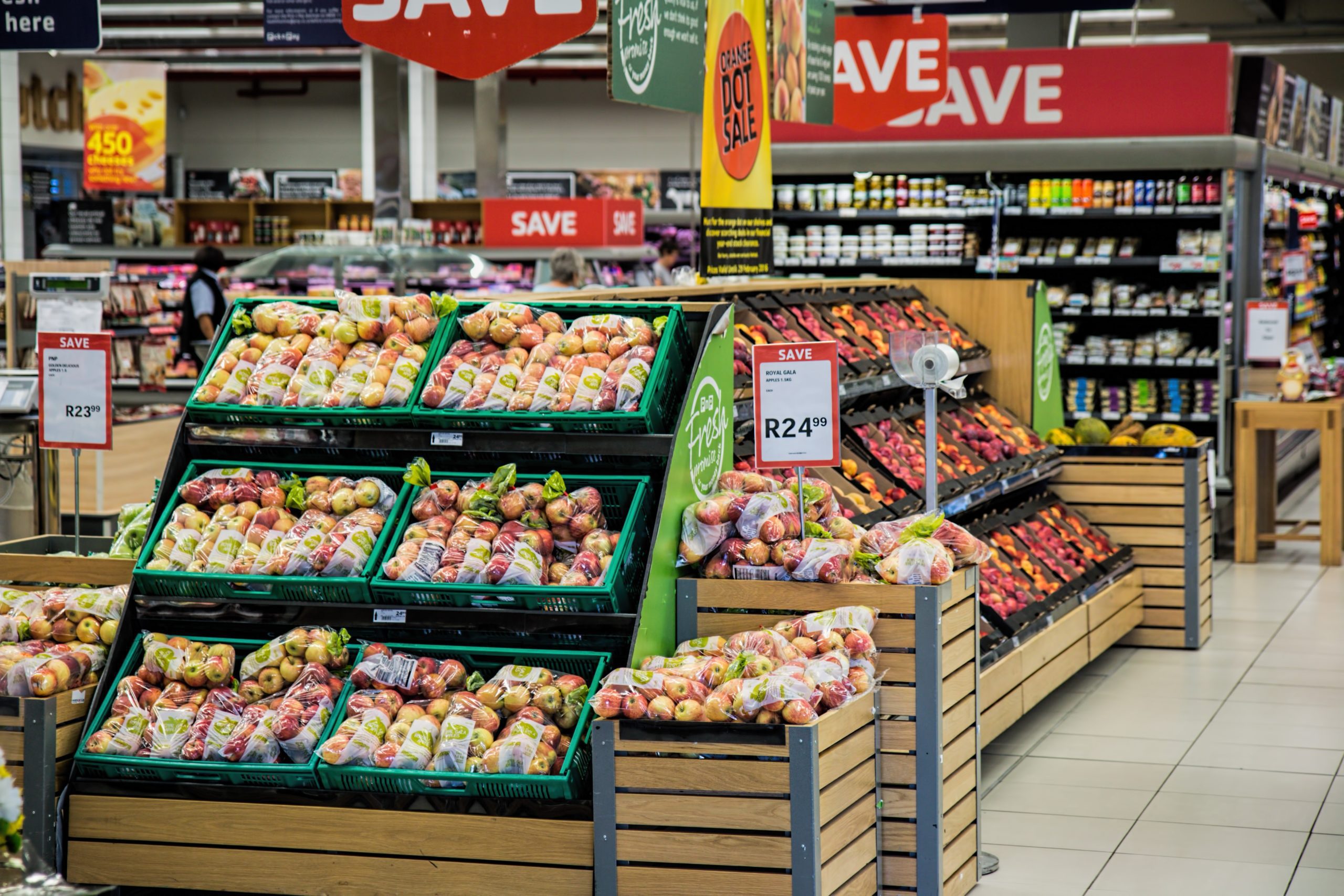Last Updated on October 17, 2022
People visit their local supermarkets weekly and sometimes even more frequently. Unfortunately, grocery stores can be havens for all kinds of bacteria, so protecting staff and customers and providing safe, healthy food should be a manager’s top priority. There are precautions that can be taken in order to avoid germs and foodborne illnesses.
While shopping, consumers will likely come into contact with these commonly contaminated hot-spots:
- Shopping cart handles
- Basket handles
- Cart child seats
- Anything raw meat touches
- Checkout belt
- Cashier PIN pad
- Reusable bags
Making customers aware of them and offering preventative measures is a way for markets to show they care about their shoppers. When patrons first walk in, they will likely reach for a shopping cart or hand basket. A study of 85 shopping carts found that 72% harbored fecal bacteria on the handles, and in 2006, the CDC reported an outbreak of Salmonella among 442 infants due to raw meat being placed too close to them in shopping carts. Providing surface sanitizing wipes and hand sanitizer is essential, as they will be able to wipe down the handles, sanitize the child seats, and clean their hands before and after shopping.
When getting in line with groceries, customers’ food may make direct contact with the checkout belt. Although these belts are considered “non-food surfaces,” they should be cleaned regularly. Mold contamination is common; however, one study even found “organisms that are typically associated with open wounds that could cause infections.” Cashiers can quickly and easily wipe up spills, drips, and anything else unsightly and sanitize the affected area if surface sanitizing wipes are available at the checkout area.
At some point during their shifts and shopping trips, employees and consumers will need to use the restroom. Providing satisfactory facilities is good business as well as necessary to the health of everyone in your store. All staff need to thoroughly wash their hands before returning to work, especially those who prepare or handle food in areas such as the deli, bakery, butcher or fish counters. Whatever food they touch and contaminate will end up in someone’s home. Customers could leave unwanted germs behind too as they pick through fruits and vegetables. As approximately 80% of communicable diseases are spread by touch, no-touch appliances in the restroom will help everyone achieve cleaner, safer hands. Installing automatic flush systems, soap dispensers, faucets, and air hand dryers or paper towel dispensers will cut down on cross-contamination and streamline trips to the bathroom.
Nowadays, grocery stores offer a variety of prepared foods ranging from rotisserie chickens to sushi, and their kitchens must follow the same sanitation standards as restaurants. The Food and Drug Administration (FDA) requires that employees must wash their hands frequently and have access to hand-washing sinks supplied with soap and paper towels or an air hand dryer. Maintaining sanitary hands is crucial in food preparation, as 89% of foodborne illnesses in food service are caused by contamination from workers. Such a high percentage indicates frequent hand washing is necessary to avoid food poisoning. The busier their environment is, the more likely they are to skimp on hand washing. Providing automatic dispensers of E2-USDA hand sanitizer approved for repeated use in food service gives staff the chance to kill bacteria, viruses, and other pathogens on their hands and reduce cross-contamination in just 15 seconds. As for the work surfaces, ServSafe recommends removing food scraps, wiping down the area with soap and water, and then sanitizing each time a different food is going to be prepared. Keeping a USDA-approved surface sanitizer available in a wall-mounted dispenser gives staff easy access to the solution they need and eliminates the clutter of multiple products.
Grocery stores are a life necessity and by implementing smart hygiene practices, you will keep everyone shopping and working in your store as healthy as possible and you can be assured that it will be a stress-free environment!
Related posts:
- Hygiene Tips For Your Business: Transportation
- Hygiene Tips for Your Business: Photography Studios
- Hygiene Tips for Your Business: Car Dealerships
- Hygiene Tips for Your Business: Restaurants
- Hygiene Tips for Your Business: Medical Offices
- Hygiene Tips for Your Business: Banks and Credit Unions
- Hygiene Tips for Your Business: Health and Country Clubs
- Hygiene Tips for Your Business: Airports
